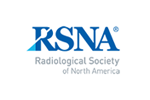Renal Failure
Renal (kidney) failure occurs when one or both kidneys do not function well. Acute kidney failure happens suddenly and can be temporary or progress to chronic failure. Chronic kidney failure is persistent and can slowly worsen over time. In general, contrast should be avoided in kidney failure, unless medically necessary.
For acute kidney injury, kidneys retroperitoneal ultrasound is usually appropriate (ultrasound uses sound waves to view the kidneys). The following tests may be appropriate: Doppler kidneys retroperitoneal ultrasound (which uses sound waves to view blood flow to and from the kidneys), abdominal and pelvic CT without contrast, MAG3 renal scan, abdomen MR angiography (MRI of the arteries) without contrast, abdominal and pelvic MRI without contrast, or abdominal MRI without contrast.
For chronic kidney disease, kidneys retroperitoneal ultrasound is usually appropriate. Abdominal and pelvic CT without contrast may be appropriate. Abdominal MR angiography without contrast, abdominal MRI without contrast, or Doppler kidneys retroperitoneal ultrasound may also be appropriate.
If doctors are unsure when kidney failure started, kidneys retroperitoneal ultrasound is usually appropriate. Abdominal and pelvic CT without contrast may be appropriate. Abdominal MR angiography without contrast, abdominal and pelvic MRI without contrast, or abdominal MRI without contrast may also be appropriate.
Kidneys retroperitoneal ultrasound is usually appropriate imaging for neurogenic bladder (the bladder may not function in the right way because of illness or injury). Tests that may be appropriate include abdominal and pelvic CT without contrast, DMSA renal scan (which gives detailed pictures of the kidneys), or abdominal and pelvic MRI without contrast.
This page was reviewed on July 10, 2023



